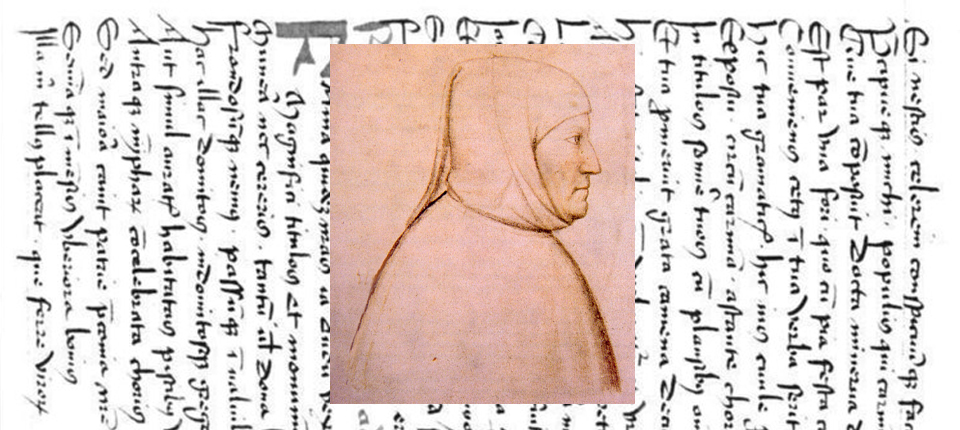The Best of the Literary Internet, Every Day

TODAY: In 1374, Italian poet and scholar Petrarch dies.
- Issa Quincy explains the delightful tension of writing a novel without planning (or even knowing anything). | Lit Hub Craft
- The Defense Department wants to ban hundreds of books. Here are the weirdest titles. | The Hub
- “Gaza has become the world’s conscience—which is not something anybody asked for.” Hala Alyan discusses diaspora, healing, and her memoir, I’ll Tell You When I’m Home. | Lit Hub In Conversation
- Hattie Williams on what age-gap relationships in literature reveal about power, sex, love, and desire | Lit Hub Criticism
- Emily Zarevich explores the literary origins of serendipity. | JSTOR Daily
- Gabriel N. Rosenberg talks to Bathsheba Demuth, author of Floating Coast: An Environmental History of the Bering Strait, about the question of timeless species. | Public Books
- How a physicist and an audio engineer (possibly) solved a Pacific Northwest horror. | Atlas Obscura
- “The only journalism business strategy that works, and that will ever work in a sustainable way, is if you create something of value that people (human beings, not bots) want to read or watch or listen to, and that they cannot find anywhere else.” Why media’s pivot to AI will inevitably end in failure. | 404 Media
- Eileen Myles recalls friend break-ups, both messy and silent. | Granta
- Adam Aleksic explores how the language of incels invaded our collective vocabulary. | The Verge
- From groceries to travel destinations, Mira Ptacin examines the poetry of found lists. | Longreads
- Eric Benson explains why UFOs are all the rage: “My first reaction was that this all seemed quite bonkers. I was close to walking out of the room.” | The Baffler
- “The exceptional clarity of this lived paradox is what we begin reaching for. So much for conjoinment.” Michelle Chan Schmidt explores the politics of togetherness and separation in Hon Lai Chu’s novel, Mending Bodies. | Public Books
- Peter Milne Greiner revisits Ursula K. Le Guin’s forgotten YA trilogy, The Annals of the Western Shore. | Reactor
- “Cellblocks full of people who killed or hurt or robbed are watching real-life murders, kidnappings and robberies for entertainment.” John J. Lennon on consuming true crime in prison. | The New York Times Magazine
- André Naffis-Sahely considers Yannis Ritsos’s poetry of Greekness. | Poetry
- Tori McCandless examines the queer joy of BBC Three’s I Kissed a Girl. | Public Books
- Gaby Del Valle investigates how ICE hit lists compiled by right wing groups endanger student protesters. | The Verge
- “It is one of these really interesting and very unusual situations where we have a legend that was widely known and hugely popular throughout the Middle Ages, and then very suddenly in the middle of the 16th century, in the High Renaissance, it’s just completely lost.” Researchers have finally solved a centuries-old literary cold case. | 404 Media
Also on Lit Hub:
Ezra Fox on working with Fanny Howe • In praise of re-reading • On deciding which books to discard or save • Finding hope in the stories of Zona Gale • Rebecca Chace on Matsuo Bashō and her mother, Jean Valentine • Letting the Roma narrate their own story • The virtues of working with nature • How TikTok is transforming the English language • Mari Andrew explores nature’s many ways of knowing • Darcy Ballantyne on finally meeting her father, the novelist Austin Clarke • Mickie Meinhardt hits the waves with Bonnie Tsui • Considering the false binary between humans and our surroundings • The surprising history of DMT, nature’s most alien psychedelic • Why Belle Époque Paris drew artists from every corner of world • The 19th century inventions that made photography possible • Books featuring characters who redistribute their wealth • 5 book reviews you need to read this week • On the artists who joined the fight for American independence • On Rachel Carson’s relationship with Dorothy Freeman • The best reviewed books of the week • On the power of writing into beauty • Rethinking climate grief through magical realism • How pieces of writing should end
